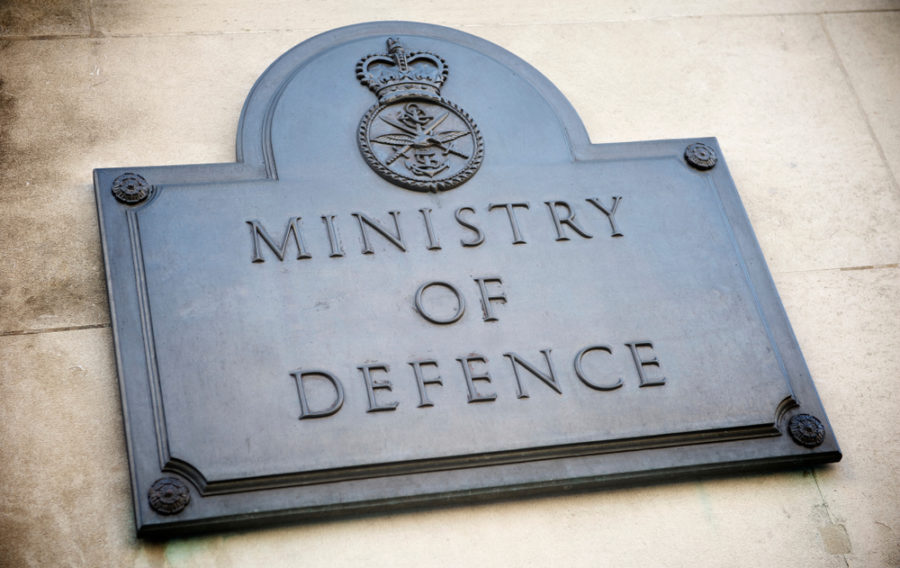
The Defence Secretary, Ben Wallace, has outlined the Government’s defence strategy over the next ten years through its Defence Review.
The Defence Review – ‘Defence in a competitive age’ – highlights a shift in focus for the Ministry of Defence with areas such as cyber, space, robotics and digital connectivity all earmarked for extra investment.
The UK Armed Forces will become a threat-focussed integrated force with a continued shift in thinking across land, sea, air, space and cyber domains.
Defence will spend over £85-billion on equipment over the next four years to allow the Armed Forces to adapt, compete effectively, and fight decisively when needed. This will support 400,000 jobs across all four nations of the UK.
The British Army will receive significant investment to become more agile, integrated, lethal and expeditionary. The service will receive an additional £3-billion on new vehicles, long-range rocket systems, air defences, drones, electronic warfare and cyber capabilities.
£120-million will create new Ranger Regiments; four battalions will form the Regiment that will support Special Forces in collective deterrence activity. This will range from training to accompanying personnel on the ground.
The Army will also introduce a new Warfighting Experimentation Battlegroup that draws on elements from across the entire Army designed to fight prototype warfare, focussing on hybrid and conventional threats.
The Royal Navy will develop a new Multi Role Ocean Surveillance ship to help protect vital underwater maritime infrastructure and protect from maritime threats, aiming to come into service by 2024.
The fleet of frigates and destroyers will grow through this decade with shipbuilding investment doubling over the life of this Parliament rising to over £1.7-billion a year.
The Royal Marines will also benefit from a £200-million investment over the next ten years to form the Future Command Force, a Commando force that is persistently forward deployed conducting specialist maritime security operations.
UK air capabilities will bolstered with an injection of over £2-billion in the Future Combat Air System which will deliver a pioneering mix of crewed, uncrewed and autonomous platforms including swarming drones and the ultra-modern Tempest fighter jet.
This programme has already created over 1,800 highly-skilled jobs in over 300 companies across the UK. The Typhoon fleet will be upgraded with a suite of new weapons and state-of-the-art radar.
There will also be £6.6-billion invested into research and development projects, helping to provide a strategic advantage that, facilitated with science, will lead to cutting-edge equipment capabilities. £60-million over the next four years will be used to develop a programme to develop novel weapons, artificial intelligence, synthetic/digital systems and space-based capabilities. Further to this, £500-million will be invested in capabilities to enable our forces to respond in a growingly contested electromagnetic environment.
The increasing importance of Space to military operations will see £5-billion invested over the next decade in the Skynet 6 satellite communication programme. This will be complimented by £1.4-billion allocated to the new Space Command, National Space Operations Centre, Space Academy and a UK-built Intelligence, Surveillance and Reconnaissance satellite constellation. Space Command will officially launch on 1 April 2021.
Strategic Command will invest £1.5-billion over the next decade to build and sustain a ‘digital backbone’ to share and exploit vast amounts of data, through the cloud, and across secure networks that are resilient to cyber-attacks from state, proxy and terrorist adversaries.
There will be significant investment in infrastructure with funding of £1.3-billion used to improve Single Living Accommodation (SLA), as part of an accommodation strategy, and £1.4-billion into wraparound childcare giving personnel more childcare options, as part of a revised families strategy.
The UK will also enhance its global outlook with an investment in overseas training and will add to its Defence Attaché network which supports our integration with allies and overseas partners.
Defence Secretary, Ben Wallace said: “This Defence Command Paper ensures our armed forces are threat-focused, modernised and financially sustainable. Our military will be ready to confront future challenges, seize new opportunities for Global Britain and lay the foundations of a more secure and prosperous Union.
“We will continue to work with allied partners to address future global security threats whilst also enhancing critical outputs in the battlespace domains.
“Our people and their expertise are at the heart of what we do and further investments into training, welfare and support facilities will be reflective of this and ensure our armed forces are well equipped to face tomorrow’s threats today.”
The Defence Review follows last week’s publication of the Integrated Review of Security, Defence, Development and Foreign Policy, which provided the most comprehensive foreign policy and national security approach published by a British Government since the end of the Cold War.
Encompassing the UK’s national security, foreign policy and approach to the global economy together, the report strategizes the Government’s vision for the UK in 2030 and how its international policy will be used to help achieve it.
The Review makes clear the UK is keen to find a new place within the geopolitical landscape. A key component of this is a shift in foreign policy focus towards countries such as India, Japan and Australia – described by the Government as ‘increasingly the geopolitical centre of the world’.
The Review last week highlighted a focus on the UK’s cyber capabilities.
The home of the new National Cyber Force will be in the North of England, establishing a ‘cyber corridor’ across the region.
The government anticipate that opening the HQ of the National Cyber Force in the North of England will drive growth in the technology, digital and defence sectors outside of London and help create new partnerships between government, the sector and universities in the region.
The National Cyber Force was created last year to transform the UK’s capacity to conduct targeted offensive cyber operations against terrorists, hostile states and criminal gangs, bringing together personnel from both defence and the intelligence agencies under one unified command for the first time.
The Review also outlined plans to make the UK a Science and Technology superpower. To help achieve this, the Government will increase economy-wide Research & Development to 2.4% of GDP by 2027 and invest £14.6 billion in R&D across government in the next year.
A more active approach to science and technology will be taken, using it to both shape and bolster policy ambitions and to influence the design and use of new technologies in line with the UK’s democratic values.
As part of efforts to maintain an effective deterrent, the Review reveals that the UK will no longer seek to reduce its stockpile of nuclear weapons by the middle of the decade, with the limit on the number of warheads now increasing to 260, having been due to drop to 180 under previous plans from 2010.
If you would like to join our community and read more articles like this then please click here







